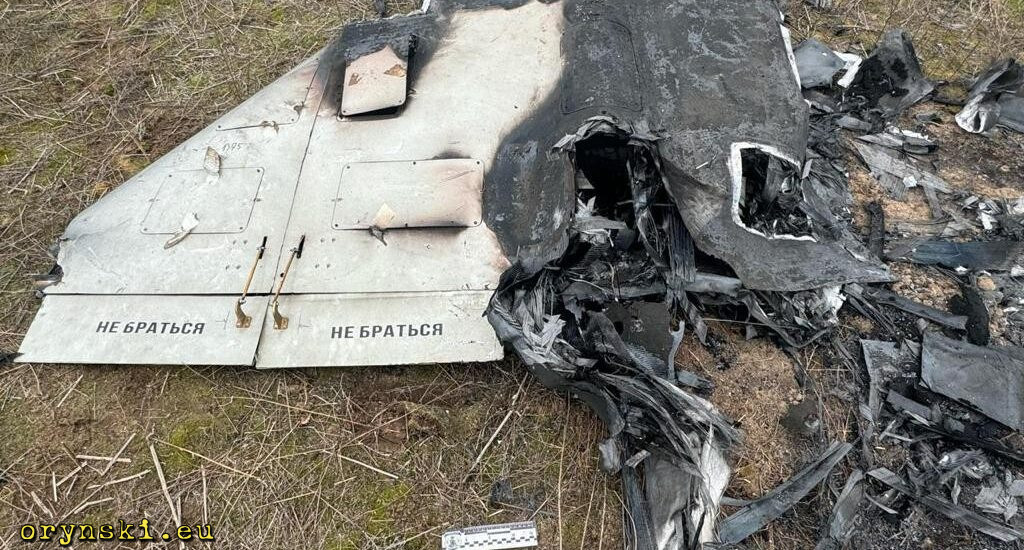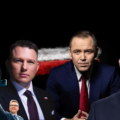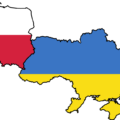After a month from inauguration of the new Polish president Karol Nawrocki, contrary to prophecies of doom, on which the ruling Platforma Obywatelska built their whole election campaign, the world has not ended yet. This might be an unpopular opinion in Poland, but this is by large part because PO and PiS are not as different from each other as they would like us to believe.
Click HERE to read the previous part of the series
Click HERE to see all the chapters of the series so far.
The biggest problem in Poland for two decades now is that Poland is split into camps that are divided so much, that the facts and actions do not matter any more. Everything is about if something is done by “one of theirs” or “one of ours”. A recent decision of president Nawrocki, in which he vetoed a bill regulating state help for Ukrainian refugees in Poland sparkled outrage, after the president argued that “the proposed bill on help for Ukrainians does not provide correction, that had been widely discussed, that 800 plus [the child benefit] should only be paid to Ukrainians who do their part by working”. The PO uses it to attack Nawrocki for being anti-Ukrainian, conveniently forgetting to mention that the idea of stripping unemployed Ukrainian refugees from the child benefit was introduced to the public discourse by none other, but their own counter-candidate in the presidential race, Rafał Trzaskowski.
Another argument is that by vetoing that bill, Nawrocki also cut Polish funding to the Starlinks systems providing support to Ukrainian armed forces and providing internet to civilians on the frontline territories. While this is true, again, we need a wider context here. The Polish constitution is designed in such a way that president has mostly destructive powers – the strongest weapon in his political armoury is the veto. In the situations where the president is from the opposite political camp (or even from the same one, but can’t be fully trusted, like in case of Andrzej Duda) the government often tried to put him in a hard spot by including two or more different things in one bill, knowing that president has no way to veto just part of the bill – he can only sign it or reject the entirety of it and hoping that he will be afraid of the backlash caused by vetoing a thing that is widely supported in order to get rid of the thing he does not like. If that was supposed to be a stress test, Nawrocki would turn out to be stronger than they expected.
In general so far Nawrocki seem to be not break away from the cross-party line of supporting Ukraine in general. On the declaratory level at least, he express his strong support for Ukraine and does not shy from calling Russia an aggressor – while still trying to appease the radical right by expecting Ukraine to make amends for their historical crimes against the Polish nation, should as Vohlyn massacres. At the same time, he seems to be liked by Trump, which, under current unfortunate circumstances might not be a bad thing: Trump is easily annoyed by people who dare stand up to him, so having a president ready to brown-nose the moron in the White House can give us hope that at least Trump won’t do anything to hasty to harm Poland. At the same time the government could work with the Europe, Canada and other nations to do some real work to help Ukraine.
But division does not cut Poland in half just across the PiS/PO line. The right wing is growing in power as well and is seen as a threat by both sides of the old division. But, again, instead of real opposition and taking seriously on board what they say, this just brings “we vs us” mentality. I observed it closely after recent Russian drone attack on Poland, when Sławomir Mentzen, leader of Konfederacja said that’s while it’s all good that fighter jets used rocket to down the drones, it is not financially sustainable if our air-defence has to shot rockets worth millions to down a drone made of plywood and styrofoam that costs just a few thousands dollars. Even within my own social media bubble I saw many people – my age, or my parent’s age – attacking Mentzen for “trying to put price on the safety of our Motherland” and “only talking about money when we’re being attacked”. Some even called him openly a traitor. Yet when on the next day one of the army general argued with virtually the same words that Poland has to create a cheap form of anti-drone defence systems similar to those used by Ukraine because we can’t afford to fire expensive rockets every time one crosses into our airspace, the very same people were praising the general for his wisdom.
This division and virtual impossibility for people from opposite camps is really damaging to the Polish political life. The three camps have fortified themselves on their position and do not even consider to listen what the other side actually have to say. And then there is the young social-democratic party Razem that tries to bring the real issue to the political discourse, with little success, as both PiS and PO camps consider them to be traitors because if they are not supporting their policies, CLEARLY they have to be working with the other side. Paradoxically Razem is most respected by the radical right Konfederacja, who, while being on the opposite end of the political spectrum, at least acknowledge that Razem is trying to work on the real issues, rather than participating in the Kaczyński-Tusk war that dominated Polish politics for the last 20 years.
The raising popularity of Konfederacja amongst the young, as well as the fact that Razem also gains popularity amongst the younger part of the population shows, that days of PiS-PO domination of the Polish politics might one day be over. But it won’t happen anytime soon.
And why would young people turn away from two major parties? While their solution might be twofold: turning to radical right that offers them easy solution based on blaming those or other groups, or to new social-democratic left that hopes to one day bring Nordic style pro-citizen state model, they have the same reasons, similar to those in other Western countries: while older generation have secured their basic needs and can now engage in the ideological wars, the young are struggling to achieve even the basic securities in life. The youngest generation of Poles is struggling due to lack of affordable housing, fossilized system of higher education, lack of government investment in the science and research and erosion of worker’s rights.
And neither of the main parties (nor their satellites like Polska 2050, Lewica or PSL) offer any solutions to that. In fact, if there is a conflict between interests of the society and interest of the big business, while PiS is known for correctly identifying the problem then trying to solve it by throwing money at it, of which half will be stolen in the process by their cronies, it will always be a safe bet that Donald Tusk’s party will side with the latter. A good example of that is a recent fight to introduce a ban on off-license alcohol sales in Warsaw during night hours. A similar ban introduced in dozens of Polish cities and introduction of such solution in Kraków few years back radically reduced anti-social behaviour and cut the need of police intervention by nearly a third in just the first year, and by 70% in the longer term. But despite the fact that public consultation on the matter show 80% support for this solution, the majority group in the Warsaw council, dominated by Donald Tusk and Rafał Trzaskowski’s party members, are fiercely opposing introducing it, using the most ridiculous arguments. My personal favourite is tweet from Leszek Balcerowicz, the Pope of Polish neo-liberalism, who argues that introduction of prohibition in Russia in September 1917 resulted in weakening of the tsarist rule. Huge if true, because as you might remember the tsarist rule ended in Russia six months earlier, after Nicolaus II abdicated and his brother refused to take over the crown.
The fact that Donald Tusk’s party is willing to go so strongly against the will of the voters shows, that they know perfectly well, that in the world, when the only important part is “which side you’re on” it does not really matter what you do. An old cartoon of Janek Koza shows men in ties kicking another one lying down. One is asking “does it hurts him?” and the other replies “Nah, he is our core electorate”. This is where we are.
But of course it’s not only the politicians that learned that Poland is just a game to play. After the EU released funds for post-Covid recovery and resilience plan, the government made sure that money will flow to the entrepreneurs as quickly as possible – at the expense of the scrutiny, which ended in a huge scandal when it has emerged that many businesses were able to obtain funds from “innovation and diversification” fund just to secure themselves passive income, or just buy fancy gadgets. The most publicised examples including catering companies given funds to buy charter yachts, businesses buying rental apartments or a small tanning studio receiving funds for fancy coffee machines. Initially PiS was doing their best to attack PO for this wrongdoing, but after it emerged that the grant were given away by the local councils – many of which are still controlled by their party – and many PiS cronies were involved in it by offering “consultancy services”, the whole matter slowly faded out of the news cycle.
But this is not surprising, because the fact that Poland was openly attacked by drones by Russia is, indeed, much bigger news. While the whole story only straightened the resolve of the European part of NATO, as the drones were downed by Polish, Dutch and Italian air forces working together, and right after the attack many other EU countries promised further support, making their air defence systems, planes, or in case of Czech Republic, helicopters available to help Polish air defence, some points are also to be awarded to Russia: the drone attack was accompanied by a huge wave of Russian disinformation, and soon after the attack the analysis of the social media shows that about half of the voices online (which, let me stress it does not mean the opinion of real Poles, as most of those would be probably Russian disinformation bots) blamed for the attack either Ukraine (a provocation aimed at dragging us in “not our war” or deliberate failure of shooting the drones heading for Poland down) or, in case of the more late Pope Francis’s flavour of being a vatnick, Poland – the argument is we got attacked because we were barking at Russia too much.
While the government response was much better than during the PiS times, where Morawiecki’s government tried to sweep similar cases under the carpet, it was not perfect and it also facilitated Russian propaganda: a pictures of a damaged house were contested as not typical for a drone impact (but also by spreading fake screenshots from an old press article with a picture swapped on it, suggesting damage occurred months ago during an extreme weather event), and it took the government several days to admit that damage was, in fact, caused by a failure of one of the rockets fired by a Polish jet fighter.
Because while our brave pilots might be able to down drones heading into Poland from Belarus, and the Russian saboteurs are also often apprehended in time (recently also in Lithuiania) the government seem to completely unable to deal with Russian meddling with Polish internal affairs. And I am not talking just about misinformation. If we rewind back to recent presidential election, there are surely some questions that need answered: how is that while a popular Youtube personality who identifies himself as journalist, Krzysztof Stanowski, was barely able to gather 100 000 signatures allowing him to take part in the race, a completely unknown Maciej Maciak, pro-Russian activist and regular commentator on the radio station supportive of the Belarussian regime, had been able to submit those, despite having virtually no structures and not leading any presidential campaign? Isn’t it weird that a man who failed to become a mayor, or even a councillor in his home town of Włocławek, population circa 100 000, was able to so easily enter the presidential race despite the fact, that his real support turned out to be less than 0.2% of votes?
And isn’t it weird that Joanna Senyszyn, a post-communist politician that just two years before failed to gather 2000 signatures to be able to stand up in the senate election, was suddenly capable of obtaining 100 000 signatures and join the presidential race as a late comer? And can the fact, that her business partner Dariusz Cychol is an outspoken defender of pro-Russian activists can have anything to do with it?
Surely, those are the questions many Poles would like to hear answers to. At least if they stopped being busy with their everyday fighting between “us” and “them”, that is.
This piece was written for Britske Listy
Picture of a drone: Ukrainian Police (CC 4.0)





